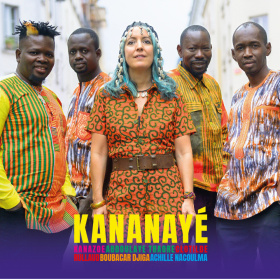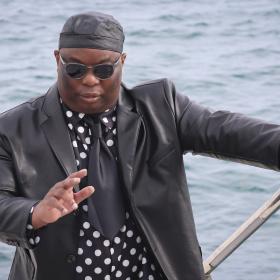Spinning Around: The South African Music Industry in Transition
By Randall Abrahams
There’s an old adage drawn from the arcane field of songwriting, a field that will receive special mention in this paper as it is my greatest love. Tony Joe White, responsible for such memorable tunes as Polk Salad Annie and most notably Rainy Night in Georgia, recently reiterated the point to young Grammy
award winner Shelby Lynne – this adage being the one singular truism when writing lyrics: ‘Write about what you know’. It took me a considerable amount of time to decide where to begin this paper but let me begin with what I know.
 Randall Abrahams
Randall Abrahams
I know that I spent many a Saturday afternoon at the Landrost Hotel in Lansdowne, which is where I grew up, marvelling at the dexterity of Basil Moses’ bass playing. Basil Moses introduced me to the work of the late Scott Lafaro, whose output with Bill Evans is the very essence of post-bop bass playing. I also
spent time at other venues in Cape Town following the Schilder brothers around and I spoke with Zayn Adams earlier this year about the chords that Chris Schilder had written for the Pacific Express hit Give a Little Love. I would like to remind the reader at the outset then that critical debate should never take away from the infinite power of the music itself; in fact, serious rock music journalism only grew up in the early 1970s and is still a field that many musicians despise.
During my early years in broadcasting at Good Hope FM in the first half of the last decade, I met the famed ‘champagne’ record producer Patrick van Blerk, who had helped form the pop group Rabbitt and wrote the mammoth hit Paradise Road for Joy. Patrick joined Satbel under Robin Taylor in 1973 as inhouse
producer. A record called Good Feeling by Margaret Singana and the Symbols, produced by Claridge Bayville Matiwane, came to Patrick’s attention and he persuaded the Satbel Managing Director, Al Constansa, to agree to a big budget for the production of an album. Even though he felt that the record he had heard was in the wrong key and the original production was not great, Patrick recognised Singana’s inherent talent.
Anyone can see an apple when it’s dropped in their hand but few can see the apple in the seed. The Beatles were rejected by Decca who believed that guitar bands were on the way out, and legend has it that George Martin at Parlophone signed them more for their sense of humour and love of the Goons than for their musical talent. However, both Patrick and George saw the apple in the seed. While Patrick and Margaret travelled internationally, visiting London and the south of France, their greatest priority was to break Margaret in South Africa. When he visited the SABC offices in Johannesburg, van Blerk was told to offer the record to Radio Bantu as Singana was a ‘black’ artist. Invoking the names of Diana Ross, the Supremes and Shirley Bassey as examples of ‘black’ artists who were successful on SABC radio, he was told that these singers were ‘international’ and therefore somehow above the restrictions placed on local musicians. At Radio Bantu he was told that the sound of the record he had produced was too international and therefore wouldn’t do well on their playlist. As Patrick described it, the record had ‘fallen through the cracks’.





























Commentaires
s'identifier or register to post comments